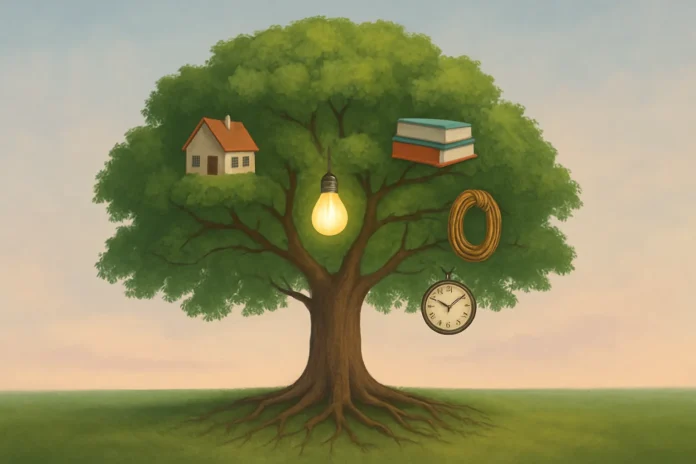Entrepreneur Advice: Combat Burnout with These Support Strategies
Burnout can be a significant challenge for entrepreneurs, but effective support strategies can make all the difference. This article presents valuable insights from experienced professionals on how to combat entrepreneurial burnout and maintain a thriving business. From building accountability-focused networks to cultivating strong community support, these expert-backed approaches offer practical solutions for entrepreneurs seeking to sustain their passion and productivity.
- Military Lessons Shape Accountability-Focused Support Network
- Prioritize Quality Connections and Enforce Boundaries
- Teach Others to Build Advocacy and Opportunities
- Serve Customers to Cultivate Strong Community Support
- Create Partnerships Through Shared Experiences
- Implement Visual Reminders and Informal Check-ins
- Find Truth-Tellers and Share Struggles Openly
- Use Social Systems Theory to Empower Change
- Invest in Recharging Routines Outside of Work
- Build Team Support Around Shared Personal Mission
Military Lessons Shape Accountability-Focused Support Network
The most powerful support system came from an unexpected place – my military background in the Georgia Army National Guard taught me that support networks aren’t just about finding people who agree with you, they’re about finding people who will hold you accountable when you’re making decisions from a place of exhaustion.
When Lauren and I launched BIZROK in 2021, I was repeating my father’s mistakes – working IN the business instead of ON it. The game-changer was connecting with other dental practice owners who had scaled past the “founder doing everything” phase. One practice owner in particular showed me his actual time-blocking system and how he delegated patient follow-ups, which I adapted for our client onboarding process.
My advice: find people who are 2-3 steps ahead of where you want to be, not your peers who are struggling with the same problems. I joined a small business mastermind where a guy who’d sold his practice for $2.3M walked me through exactly how he transitioned from clinical work to business development. That conversation directly influenced how we structure our Executive Business Coaching program today.
The key is being specific about what kind of support you need – I needed operational systems advice, not just emotional support. Those tactical conversations about delegation and time management saved me from burning out completely.
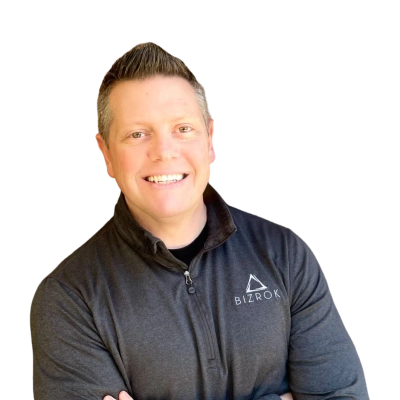 Tim Johnson
Tim Johnson
CEO, BIZROK
Prioritize Quality Connections and Enforce Boundaries
Startup burnout is a significant concern, and as a clinical psychologist who also founded MVS Psychology Group, it’s something I’ve addressed both personally and within our practice. Our approach at MVS is to proactively manage well-being through robust internal support structures.
We built our system through healthy clinical oversight, regular reflection, and supervision for our clinical and administrative teams. This includes consistent operational and clinical support, fostering a collaborative environment with dedicated breakout areas for peer support and discussion. We believe looking after those who look after patients is paramount to sustained performance.
For cultivating meaningful support networks, my advice is to prioritize quality over quantity and actively enforce boundaries. Seek out people you genuinely want to engage with, and protect your time by scheduling adequate breaks and saying no to unrealistic demands. This ensures you have the energy and capacity to nurture the connections that truly sustain you.
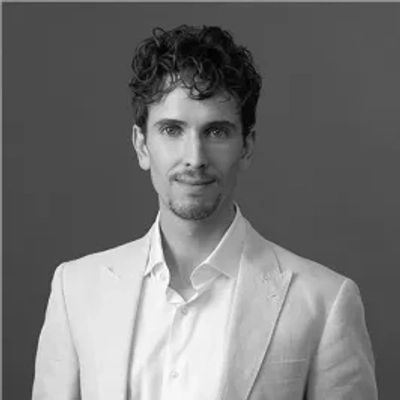 Maxim Von Sabler
Maxim Von Sabler
Director & Clinical Psychologist, MVS Psychology Group
Teach Others to Build Advocacy and Opportunities
My burnout hit hardest when I was trying to build Caddis while managing fractional CRO work for multiple clients simultaneously. The breakthrough came from my fly fishing background—I realized I needed to apply the same patience and environmental awareness to building my support network that I use on the water.
I started meeting other fractional executives at a monthly breakfast group in Fairfield County, but the real value came when I began sharing specific KPI frameworks from my SalesQB work with a struggling fractional CFO. He returned the favor by introducing me to two financial advisory firms that became my best clients, generating 40% of my first-year revenue.
The unexpected support came from my own clients. When I was overwhelmed trying to customize sales strategies for each business, one of my financial advisor clients suggested we co-create a template system. This collaboration reduced my prep time by 60% while actually improving results—his lead generation improved by 35% using our refined approach.
My tactical move: find one person in your field who’s six months behind where you are, then teach them something specific you’ve learned. They’ll become your biggest advocates and often connect you with opportunities you’d never find alone.
 Jeff Mount
Jeff Mount
CEO, Caddis Solutions
Serve Customers to Cultivate Strong Community Support
After surviving the 2022 floods that destroyed our Brisbane shop and rebuilding from scratch, I learned that your customers can become your strongest support network if you’re genuinely serving them. When we were at our lowest point, our community of riders–many of them seniors and people with disabilities who depend on us–rallied around us with encouragement and patience while we got back on our feet.
The game-changer was shifting from seeing support as something you need to something you give first. Instead of networking events, I started showing up where our customers actually were–disability expos, retirement communities, Universities of the Third Age. Not to sell, but to genuinely solve mobility problems for people who’d been told they couldn’t ride anymore.
This approach created unexpected allies. When I designed the Lightning eBike for people with dwarfism, connecting authentically with that community led to partnerships that now ship our bikes internationally. The technical expertise came from my co-founder Richard, but the support network that sustained us through development came from listening to real riders’ frustrations.
My advice: find the people your business genuinely serves and become indispensable to their success, not your own. When you help a 70-year-old get back on a bike after decades, they don’t just buy from you–they become advocates who understand your mission and will support you through the tough times.
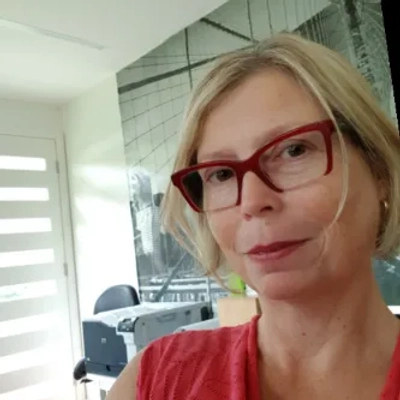 Andrea Herklots
Andrea Herklots
Co-Owner, EveryBody eBikes
Create Partnerships Through Shared Experiences
After launching ilovewine.com, I hit a wall around year three when content creation felt endless and revenue growth stalled. The breakthrough came from building relationships with other wine professionals I met during my travels, not through formal networking but through genuine shared experiences.
During a harvest season in Bordeaux, I connected with three other wine writers who were dealing with similar burnout. We started a private group chat where we share story ideas, cross-promote each other’s work, and honestly discuss the financial realities of wine media. When one of us lands a big conference speaking engagement, we recommend the others for future events.
The game-changer was treating my contributors like true partners rather than freelancers. Cristal, Ryan, and Annelise now have equity stakes in major content decisions and revenue sharing from pieces that perform well. Our community grew from 100,000 to 500,000 because my team felt genuinely invested in the platform’s success.
My advice: find people in adjacent niches facing the same challenges and create informal support structures with real stakes. When my team succeeds, I succeed—and that shared investment creates accountability that formal mentorship programs never matched.
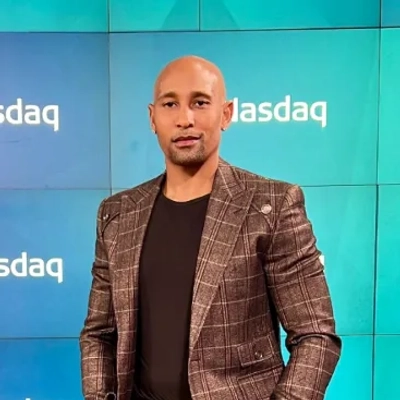 Jonas Muthoni ILW
Jonas Muthoni ILW
Editor in Chief, ilovewine.com
Implement Visual Reminders and Informal Check-ins
After 26 years in the portable sanitation industry, I’ve learned that burnout hits hardest when you lose sight of the bigger picture. My breakthrough came when I started showing our manufacturing teams photos of our portable restrooms being used in disaster relief areas. Suddenly, everyone could see their daily work was literally helping people stay clean and safe during their worst moments.
The most effective support system I built was implementing what I call “perspective breaks” – regular walks around our facility with different team members. These weren’t formal meetings, just natural conversations while moving around. Walking with colleagues from other departments sparked creative solutions and built genuine relationships that became my safety net during stressful periods.
My advice is to create visual reminders of your work’s impact and pair them with informal face-to-face interactions. When our production crew could see disaster relief workers using our equipment, their motivation skyrocketed, which took pressure off me as a leader. The combination of purpose-driven visuals and regular informal check-ins creates a support network that sustains itself.
 Michelle Amelse
Michelle Amelse
Vice President of Marketing and Customer Success, Satellite Industries
Find Truth-Tellers and Share Struggles Openly
When I started Rowland Pest Management, I reached a point where I was doing everything—sales, service, scheduling—and it began to wear me down. What helped most was having a mentor in the industry I could call when I was frustrated or stuck. He’d been through the early grind and always reminded me that the feeling would pass if I stayed focused. Having someone who understood what I was going through made a significant difference.
If I had to give one piece of advice, it’s to find people who don’t just cheer you on, but who tell you the truth. Whether it’s a mentor, another small business owner, or a friend outside the industry, you need people who can talk you down, call you out, and keep you grounded. It’s easy to isolate yourself when things get hard—but that’s when you need support the most.
When I hit burnout in our second year, my wife was the one who told me I needed to stop trying to do everything myself. That conversation led me to finally hire someone to take over scheduling, which gave me room to breathe. It was the first real step in building a team I could lean on.
My advice: open up about the hard parts with people you trust. I kept quiet at first, thinking I had to handle it all. But once I shared what I was dealing with, I found out others had been there too—and they actually had useful advice. You don’t have to tough it out alone.
 Chris Rowland
Chris Rowland
Owner, Rowland Pest Management
Use Social Systems Theory to Empower Change
As we look at how to build a viable support system to help you deal with some of the inevitable “ups and downs” of creating a startup and subsequent burnout, let’s more closely explore the true power and potential inherent in thinking about your system as a whole.
Social Systems Theory posits that all organisms can be conceptualized as systems. The environment in which individuals exist continually influences them, and they also influence it—creating it, restructuring it, and both changing it and being changed by it. As one part of a system changes, that change will interact with other parts of the system, causing further change to the system as a whole. When we consciously implement this theory, empowerment awaits.
Instead of giving you my own advice on how to cultivate a meaningful support network, which may feel dry, I would like to instead provide you with a tangible tool to help you better conceptualize your own “systems” and the ability to intervene on your own behalf accordingly.
Start by writing your name in the middle of a sheet of paper and then write down in a circular pattern surrounding your name ALL of the various “systems” that you can think of that are currently impacting you in one way or another, i.e.: money, time, partners, friends, colleagues, family, kids, healthcare, hobbies, alcohol, etc. Then, think about each one and decide if you feel like it’s “taking more of your energy” (taking) or “giving more energy to you” (feeding) currently. Remember that this is a subjective experience that we are attempting to illustrate binarily. Simply use an arrow to show if you have “energy” coming to you or away from you and do so with each of the items on your list.
After you complete this picture of yourself, your systems, and subsequent arrows on the page either going toward you or away from you related to the various systems in your life, I want you to think of ONE intervention that you could make that would create a positive reverberation in your system as a whole. This could look like adding something, taking something away, having a conversation, changing a routine, etc. For example, if I have stopped working out and I begin working out again, this could positively impact my relationship, my health, my attitude, and energy level, creating a cascade of positive momentum. Be creative and remember that even a minor systemic change can create a number of positive systemic reverberations.
 Louis Laves-Webb, LCSW-S, LPC-S
Louis Laves-Webb, LCSW-S, LPC-S
Psychotherapist/CEO, Louis Laves-Webb, LCSW-S, LPC-S & Associates
Invest in Recharging Routines Outside of Work
I love working and rarely feel burned out—unless I’m pulled away from my family by long weekday hours or weekend work. To stay sharp and avoid burnout, I train hard: about 3-4 hours of zone 4 cardio, 4 hours of strength training, and 3 hours of HIIT every week. It sounds like a lot, but I split it between the gym, mountain biking, and riding my jump bike—so it never feels repetitive. That physical outlet clears my head, improves my focus, and actually makes me more efficient, so I get more done in fewer hours. My advice? Invest in a routine that recharges you outside of work. Burnout doesn’t come from working hard—it comes from working without renewal.
Robert Portillo
Founder, BroBex Marketing
Build Team Support Around Shared Personal Mission
My support system for this venture has been my team as well as my family. We’re all in this for very personal reasons: we want to support people who have to care for their family members because all of us have family members who need extra care. The ability to commiserate, support each other, and remind each other why we’re doing this has kept all of us going.
 Wynter Johnson
Wynter Johnson
CEO, Caily

